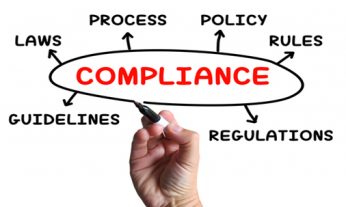 You have a Facebook account; practically everyone does. Can it be a problem for you when it comes to seeking a job? The short answer is yes.
You have a Facebook account; practically everyone does. Can it be a problem for you when it comes to seeking a job? The short answer is yes.
Employers Take a Peek
The fact of the matter is, 60% of 5,000 surveyed employers confess to using sites on social media to find out about potential employees. That number has increased by 500% in the past 10 years. Here is something worth noting: Nearly half of those employers report finding something on a social media site that made them hesitant to hire a job candidate. Do we have your attention yet?
Dangerous Facebook Posts
What kinds of Facebook or online posts could be detrimental to your employment opportunities? We recommend avoiding certain posts, such as:
- Sexually provocative photos, videos, or stories;
- Pictures, video, and comments related to drinking and/or drug use;
- Posts displaying discriminatory attitudes;
- Profanity;
- Gun references;
- Inflammatory comments about previous employers/coworkers;
- Communication skills that indicate poor grammar, spelling, etc.
Turning Facebook Lemons into Lemonade
We know there is a good chance that your potential employer is going to look at your Facebook, LinkedIn, Twitter, or other social media page. In fact, 41% of employers report that they may not even interview candidates if they can not find information about them on Facebook or elsewhere online. What now? Seize the opportunity! This is your chance to make a great impression! Instead of causing your potential employer to scratch his or her head in wonder while viewing your online presence, let him or her see all the ways you stand head and shoulders above the crowd. What might your posts include?
- Pictures showing you engaged in volunteer work;
- Posts revealing your positive outlook and professional stature;
- Engagement in hobbies that stretch your skills and determination;
- Information displaying your travel and global interests;
- Posts showing smooth, clean communication skills;
- Comments from others indicating what a stand-up character you are.
Remember, employers are looking for someone who is not only qualified for the job; they also want someone who is a good cultural fit. Additionally, many employers are looking for creative, engaging people for their companies.
When it Becomes a Legal Issue
All of this is completely legal, although some potential employers may cross a line that could leave them vulnerable to legal action. You may have legitimate concerns if you are asked to share your password, or if you get the impression that you have been singled out when it comes to the viewing of social media.
Think Before You Post on Facebook
In this day and age, every single thing you post on social media is fair game. So, think. Be smart about it. If you have concerns about your employment in Sonoma County, Mendocino County or Lake County California being impacted by social media and would like our legal team to take a look at your situation, contact us at Beck Law P.C., in Santa Rosa.









